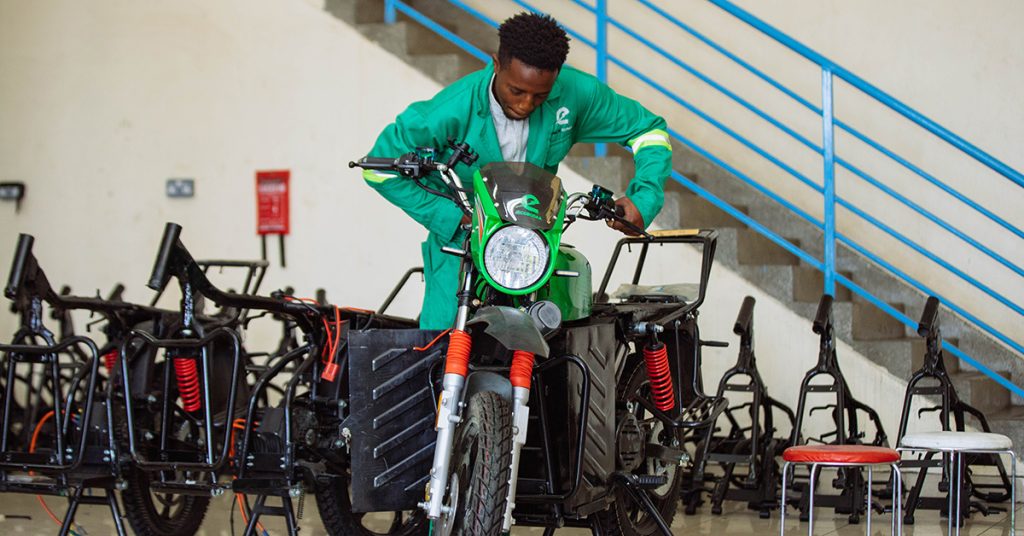

London – 16 October 2025 – The Powering Renewable Energy Opportunities (PREO) programme, which is co-funded by the UK Government under the Transforming Energy Access platform and the IKEA Foundation, launches its latest publication – Driving Interoperability: Insights from PREO’s E-Mobility Portfolio, today at Africa E-Mobility Week 2025. The report presents a detailed analysis of how interoperability can address structural inefficiencies in sub-Saharan Africa’s electric mobility sector and support the transition from fragmented pilots to scalable, investable business models.
Transport is a critical enabler of livelihoods across sub-Saharan Africa. From motorcycle taxis to delivery services, two- and three-wheelers form the backbone of daily mobility, connecting people to jobs, markets, healthcare, and education. Yet the sector remains overwhelmingly dependent on fossil fuels – driving up operating costs, contributing to urban air pollution, and undermining efforts to reduce emissions. As countries across the region seek to expand access to clean energy, electric mobility offers a transformative opportunity to decarbonise transport, lower costs for riders, and build more resilient urban infrastructure.
PREO’s report draws on five years of insights from its early-stage investments in electric mobility enterprises. It identifies key limitations in vertically integrated business models, which have often resulted in duplicated infrastructure, fragmented supply chains, and underutilised assets. In contrast, the report advocates for shared systems – such as neutral swap stations that enable battery exchanges across different vehicle brands, modular battery systems designed for flexible integration, and open-access charging networks compatible with any EV model. These innovations not only reduce capital intensity and improve asset utilisation, but also enhance the overall rider experience. Crucially, interoperability goes beyond operational efficiency: it lowers material consumption, minimises waste, and makes e-mobility more affordable and accessible for riders across Africa. By embracing these shared approaches, the sector can move toward scalable, inclusive, and commercially sustainable electric mobility ecosystems.
The PREO programme, which is delivered by the Carbon Trust and Mercy Corps’ clean innovation platform Energy 4 Impact, will host a dedicated session at Africa E-Mobility Week on 16 October to launch the report. The session will feature a panel discussion with key actors from across the e-mobility ecosystem, exploring the technical and commercial foundations of interoperability, lessons from pilot deployments, and opportunities for collaboration across the value chain.
The report features case studies from five companies – Mazi Mobility, AG Energies, CHAJI, STIMA Mobility, and Ecobodaa – each demonstrating practical approaches to interoperability across infrastructure, battery systems, charging networks, asset ownership, and software platforms. It concludes with a four-part roadmap focused on technical alignment, shared infrastructure platforms, commercial model harmonisation, and enabling regulatory frameworks.
Interoperability has the potential to reshape the trajectory of electric mobility in sub-Saharan Africa. By enabling companies to specialise, aggregate demand, and collaborate across shared systems, it offers a commercially viable pathway to scale. As the sector matures, interoperability could unlock efficiencies that reduce costs, attract private investment, and expand access to clean transport solutions. In doing so, it supports broader development goals – creating jobs, improving air quality, and accelerating the transition to low-carbon energy systems. PREO’s report provides a timely evidence base to inform strategic decisions by policymakers, investors, and operators working to build inclusive and resilient e-mobility ecosystems across the continent.